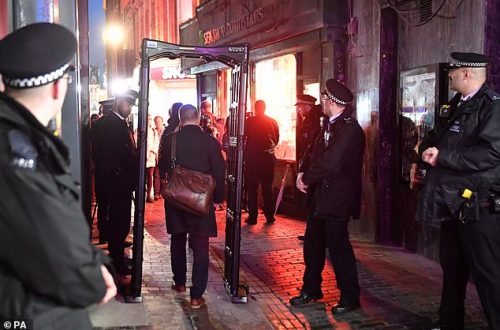In 1986, Jill Saward was raped by burglars who had broken into her home. Her father, the Vicar of Ealing, and her boyfriend were badly injured.
After nearly two decades of working in victim support, Jill Saward has entered politics. Specifically, she is running against Davis Davis.
Her particular gripe with the former politician is this:
Another “erosion of British liberty” [identified by Davis] is the national DNA database. According to David Davis, neither this, nor the other security measures he now fights against, will make us safer. In fact, he describes it as “a myth to believe that we can defend our security by sacrificing our fundamental freedoms.”
David Davis appears to be very concerned about “British liberty.” But what does it mean? I want men and women – including children – to be at liberty to walk the streets of our towns and cities without fear of violence in general – and sexual violence in particular; and to feel safe in their own homes and workplaces.
And part of that “British liberty” is to expect the law enforcement agencies to use every tool at their disposal to catch the people responsible for the attack – and to never give up.
The National DNA Database has done just that. There have been numerous occasions when rapists have been convicted years after the attack – simply because, when the trail and investigation had gone cold, the DNA profile of the attacker had been retained. And when the rapist had been arrested years later, for something completely unrelated – the routine DNA test had provided a match.
Surely this is a good thing? This ensures our freedom, and our liberty. But Mr Davis wants to do away with it. If anything we should be expanding the national DNA database so that everybody’s DNA is on it.
DNA can rule people out of investigations as well as pointing the finger.
Here she is blogging at CiF.
If I lived in Haltemprice and Howden, I think I would vote for Jill Saward. I am not a supporter of 42 days detention, because I think that Government did not make a convincing case for it. I am generally not madly enthusiastic about ID cards and so on: but largely because I think they’re expensive and inefficient.
I have some sympathy with people who don’t want the State to know “things” about them, and who are prepared to make a fuss if government agencies insist on collecting information on individuals. Unfortunately, if you want the State to do lots of “things”: such as paying benefits, organising education, providing health care, and so on, the State needs a lot of information, which it uses to ensure that those services are delivered appropriately. If you’re an anti-Statist libertarian, then fair enough. Campaign for a minimal State, where information gathering isn’t required, because the State does next to nothing. Play by the rules until you win.
However, a national DNA database presents a very minor infringement of privacy. I do accept that DNA databases are not a panacea. However, they are an extremely useful tool: which can equally help to free the wrongly accused, and to convict those who are guilty.
I’m not really sure what the big fuss over a DNA database is about. Possibly, like a savage encountering a camera and a photograph for the first time, Davis Davis thinks that if the state has a record of your DNA pattern, it has stolen your soul.
Apparently, Jill Saward’s great grandfather “was Captain Henry Kendall notable for being the first person to use radio to capture a criminal (Dr Crippen)”. Perhaps, back in 1910, there was a national debate on whether using a radio to capture a murderer was unsporting, and a gross abuse of our right to privacy. I don’t know.
